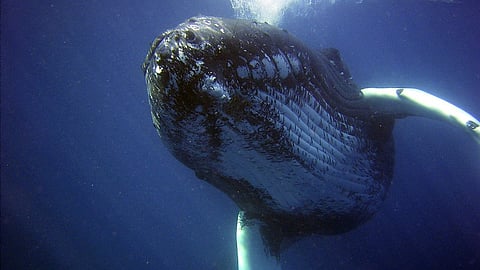Proposed whale sanctuary may impact fisheries in South Atlantic
Countries in Latin America should oppose the creation of the South Atlantic Whale Sanctuary (SAWS) – a proposal that has been debated for over 20 years in various international forums – as it disregards the principle of sustainable use of marine resources. This principle is crucial to the livelihoods of many coastal communities across the region.
This view is held by IWMC World Conservation Trust, an international organization that attended the 69th biennial meeting of the International Whaling Commission (IWC69) as an observer from Sunday, September 22 to Friday, September 27 in Lima, where the feasibility and potential approval of the sanctuary were reassessed.
Eugene Lapointe, President of IWMC World Conservation Trust, warns that while the sanctuary focuses on whales, the restrictions it would impose on the designated area could negatively impact other marine resource uses, particularly local fisheries that have long played a role in promoting regional food security. He cites the example of Oldepesca, a key player in this regard.
"Sustainable use ensures that marine resources, including whales, can be responsibly managed without harming populations or ecosystems," said Lapointe. "It would be highly contradictory for Latin American nations, which have led efforts to promote the Blue Economy and sustainable harvesting of marine species, to support this sanctuary."
Critics of SAWS also argue that the proposal could infringe on the sovereignty of Latin American states by imposing restrictions on their exclusive economic zones (EEZs), undermining national and regional autonomy in the management of marine resources.
"Instead of supporting external sanctuaries, Latin American countries should prioritise improving existing regional conservation initiatives like the Caribbean Large Marine Ecosystem Project (CLME+) and the Mesoamerican Reef Fund (MAR Fund), which already promote biodiversity conservation and sustainable marine resource use," Lapointe added.
Furthermore, experts in the field argue that there is no justification for the sanctuary's creation, as the International Whaling Commission already has effective conservation measures in place. These include a moratorium on the commercial hunting of certain species and the Revised Management Procedure (RMP), which sets sustainable catch limits. Therefore, the creation of the sanctuary lacks a strong foundation.
The IWMC said that, regardless of the outcome of the IWC meeting in Lima, Latin American countries will need to carefully consider the medium- and long-term economic, political, and environmental impacts that the proposed sanctuary could have on the region.
Originally presented by Brazil, the proposal has been rejected 12 times. It aims to prohibit all whaling activities for at least 20 years in an area stretching from the equator to Cape Horn and from South America to West Africa.


